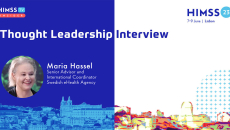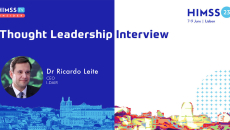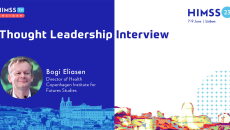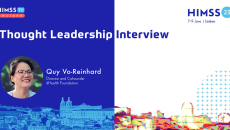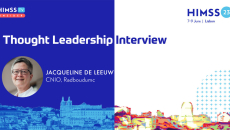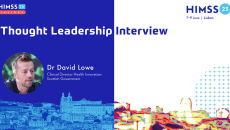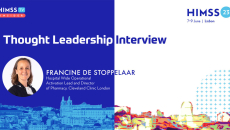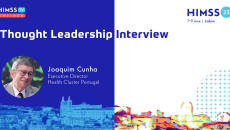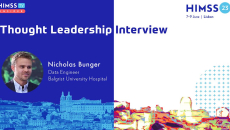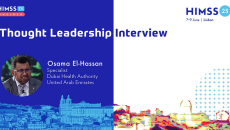EMEA
Maria Hassel, Swedish eHealth Agency's international coordinator, relays how Sweden led the European Health Data Space negotiations and what needs to be done to ensure health data access throughout the EU.
Systems need to deliver what healthcare workers want, utilize digital technologies to ease workforce burden and focus on lowering the burden of disease to face the challenges in healthcare today, says Dr Ricardo Leite, CEO of I-DAIR.
Bogi Eliasen, director of health at the Copenhagen Institute for Futures Studies, explains how the Nordics advanced digital infrastructure by applying unique digital identifiers for patients and professionals, and how the HIMSS community helps.
Quy Vo-Reinhard, dHealth Foundation director and cofounder, highlights the key challenges and applications for frontier technologies, such as immutable health records, the interoperability of health data exchange and the need for education.
Jacqueline de Leeuw, chief nurse innovation officer at Radboud University Medical Centre (Radboudumc), tells how the hospital achieved HIMSS EMRAM Stage 7, allowing its nurses to access a seamless data flow from multiple external sources.
Professor David Lowe of the Scottish government discusses use cases of AI, including lung cancer detection, and the legal and ethical considerations around adopting AI.
Francine de Stoppelaar, Hospital Wide Operational Activation Lead of Cleveland Clinic London, tells how the private hospital built a native digital system through years of preparation, and the challenges and rewards that came with the build.
Joaquim Cunha, executive director of Health Cluster Portugal, discusses increasing cooperation and collaboration in innovation between academia, private industry and healthcare stakeholders both internally and externally in Portugal.
The greatest impact from reaching EMRAM Stage 6 was improved efficiency of hospital operations, says Nicholas Bunger, data engineer at Balgrist University Hospital. Systems seeking more digitalization need to move toward that vision.
Osama El-Hassan of Dubai's Health Authority talks about Zimam and how the GCC region built a workforce by upskilling and promoting digital health implementation. The process helped with workforce retention and technological adoption.
